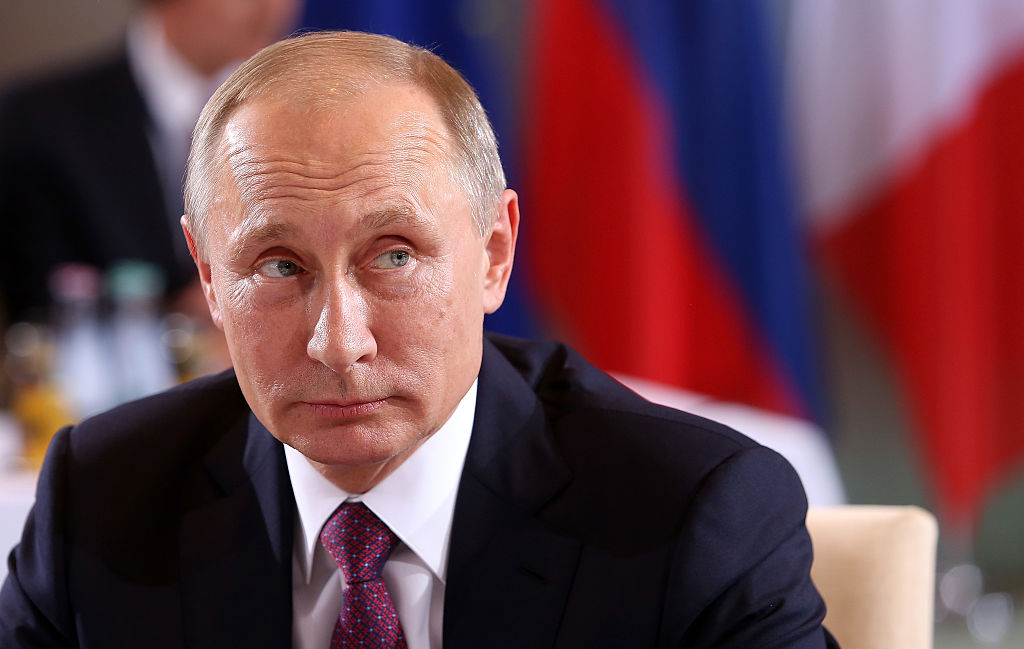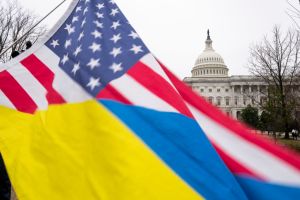If Vladimir Putin’s goal is to reestablish Russian influence, his ambitions are on track for another major setback. Far less high-profile than the war in Ukraine, a slow and quiet revolution has been brewing south of Russia’s borders in Central Asia and the Caucasus. These nations, members of the former Soviet Union, have traditionally been in Russia’s sphere of influence. That, however, is now changing.
At the start of the year, it looked like Russia was ascendant. Putin had over 150,000 troops waiting to invade Ukraine, and was receiving a steady stream of Western visitors pleading with him to step back. When Kazakhstan was engulfed in popular protests, Putin stepped in and deployed about 2,500 Russian troops after an appeal by the Kazakh president to help quell the unrest. This was done under the auspices of the Collective Security Treaty Organization (CSTO), the Russian-led regional defense pact. Any successes, however, were seriously challenged starting on the morning of February 24.
The invasion of Ukraine fundamentally altered the strategic terrain in Central Asia. Nations were forced to navigate a global crisis created by one of their hitherto closest partners. Many fear that they may be a future target, if Putin’s rationale for invading Ukraine is what he says it is. Kazakhstan, wary of protests after they nearly toppled the government in January, allowed anti-war demonstrations to go ahead, and has handed out fines to those displaying the pro-war “Z” symbol. It has also gone out of its way to say it will not recognize the Donetsk and Luhansk People’s Republics. Uzbekistan, Kyrgyzstan, and Tajikistan all openly disagreed with the details Moscow released of calls between their presidents and Putin, which claimed they were more sympathetic to the war in Ukraine. Uzbekistan has also made clear that it will not recognize Putin’s proxy states in Ukraine. Further, Kyrgyzstan, Kazakhstan, and Uzbekistan have all sent non-military aid to Ukraine.
These actions may seem rather mild, but they are quite significant coming from states that, until recently, have been firmly in Russia’s camp. Their decisions to go against Russia are likely influenced in part by second-order consequences of the war, including the effects of Western sanctions. Many countries in Central Asia receive massive amounts of cash from remittances sent back home by migrant workers in Russia. In February, Russia had about a million workers from Kyrgyzstan, 1.2 million from Tajikistan, and 2.1 million from Uzbekistan — big numbers given the relatively small populations of these countries. Kyrgyzstan, for example, received about 31 percent of its GDP from remittances. In a foreshadowing of today’s crisis, after Russia’s 2014 invasion of Ukraine, Western sanctions had a serious impact on Kazakhstan’s economy, as much of its trade routes pass through Russia, making Western goods difficult to import.
Central Asian and Caucasian countries have since begun to look elsewhere for trade and economic support. The European Union has become Kazakhstan’s largest trading partner, and its trade with Germany shot up 80 percent between January and June. Uzbekistan’s rose by 111 percent. Azerbaijan, meanwhile, has agreed to increase its gas exports to the EU by 100 percent to offset the loss of Russia’s gas.
Aside from the war in Ukraine, recent events in the Caucasus and Central Asia also portend weakening Russian influence. During the 2020 Nagorno-Karabakh war between Azerbaijan and Armenia, Putin brokered a peace agreement that forced Armenia to cede large portions of its previously held territory in Nagorno-Karabakh. Armenians were angered by the agreement, though they had little recourse given their losses in the conflict. Russia was placed in a bind, not least because both Armenia and Azerbaijan are partners of Moscow, and siding with one over the other would guarantee a weakening of Russia’s influence. Nonetheless, Russia’s ineptitude in handling the 2020 war, which ended up lasting for over a month, indicated that the country was losing its clout.
The tension between Armenia and Russia reached new heights last week when border clashes resurfaced. In the fighting, Armenia and Azerbaijan lost a total of over 200 troops, making this the largest flareup since 2020. As a member of Moscow’s CSTO, Armenia had sought Russian aid in the conflict. Being bogged down in Ukraine likely contributed to Russian unwillingness to get involved in any appreciable capacity. Armenia is reportedly vexed by Russia’s lack of action. It also questions the value of Moscow as a security partner: if it cannot defend one of its closest allies, is it really an ally worth having? At the same time, Azerbaijan is irked by Russia’s perceived tilt towards Armenia. In effect, Putin is failing to mollify either party.
At nearly the same time that Armenia and Azerbaijan were facing renewed conflict, a short border war erupted in Central Asia between Kyrgyzstan and Tajikistan. About 100 soldiers from both sides were killed, and nearly 200 injured. Like Armenia, both states are members of the CSTO, and both have Russian military bases in-country. A September 16 ceasefire agreement has largely held, but the fighting poses yet another challenge to Russia’s influence.
For well over a decade, Central Asia has been subject to a relatively simple partnership of sorts between Russia and China: Russia provides security and China provides economic advancement. As Russia’s military proves itself inept in Ukraine, and conflicts continue to arise in the region, there will be questions about Moscow’s capacity to fulfill its role. And if Russia cannot be trusted as a defense provider, someone else must step in.
China is the prime candidate, having gradually increased its regional influence beyond economic involvement. Tajikistan, for example, has hosted Chinese troops for years (despite its refusal to admit it), and in 2021 accepted Chinese funding for a new base for the Tajik military. Chinese President Xi Jinping’s recent visit to Kazakhstan — his first trip abroad since the Covid-19 pandemic — indicates a related development. In what are always carefully choreographed statements, Xi said China was committed to Kazakhstan’s “independence, sovereignty and territorial integrity,” adding that it “categorically [opposes] the interference of any foreign forces in [Kazakhstan’s] internal affairs.” There is little reason to say this unless Kazakhstan has serious concerns about its sovereignty – concerns that are almost certainly generated by Russia. By committing himself to Kazakh sovereignty, Xi is slowly deepening China’s regional involvement. And while the Caucasus has yet to see extensive Chinese involvement, that may soon change.
As Russia’s global influence continues to wane, perhaps nowhere will it be felt more than in Central Asia and the Caucasus. It is unlikely that Russia will be pushed out of either region altogether, as it maintains both a military and economic presence. It is also among the largest trading partners of most of the regions’ countries, and has numerous bases scattered throughout.
But Russia’s declining influence is nonetheless notable, as it both represents a major geopolitical development in its own right and gives China the opportunity to expand its regional power. As competition with China heats up, managing this ought to be a priority for the West.


















